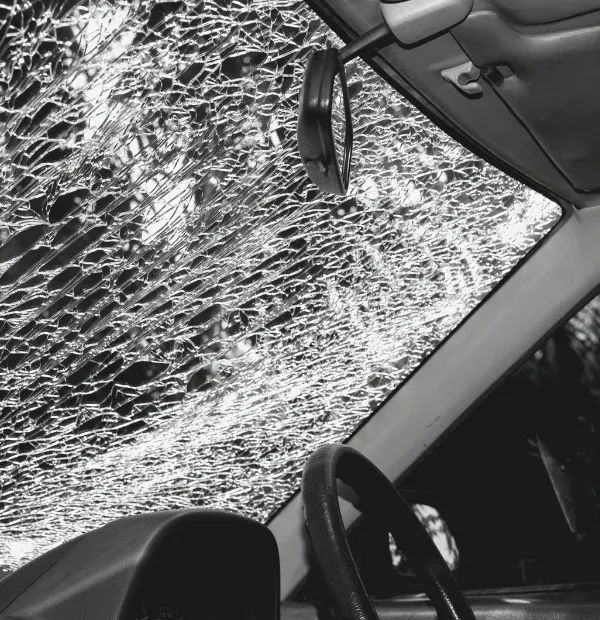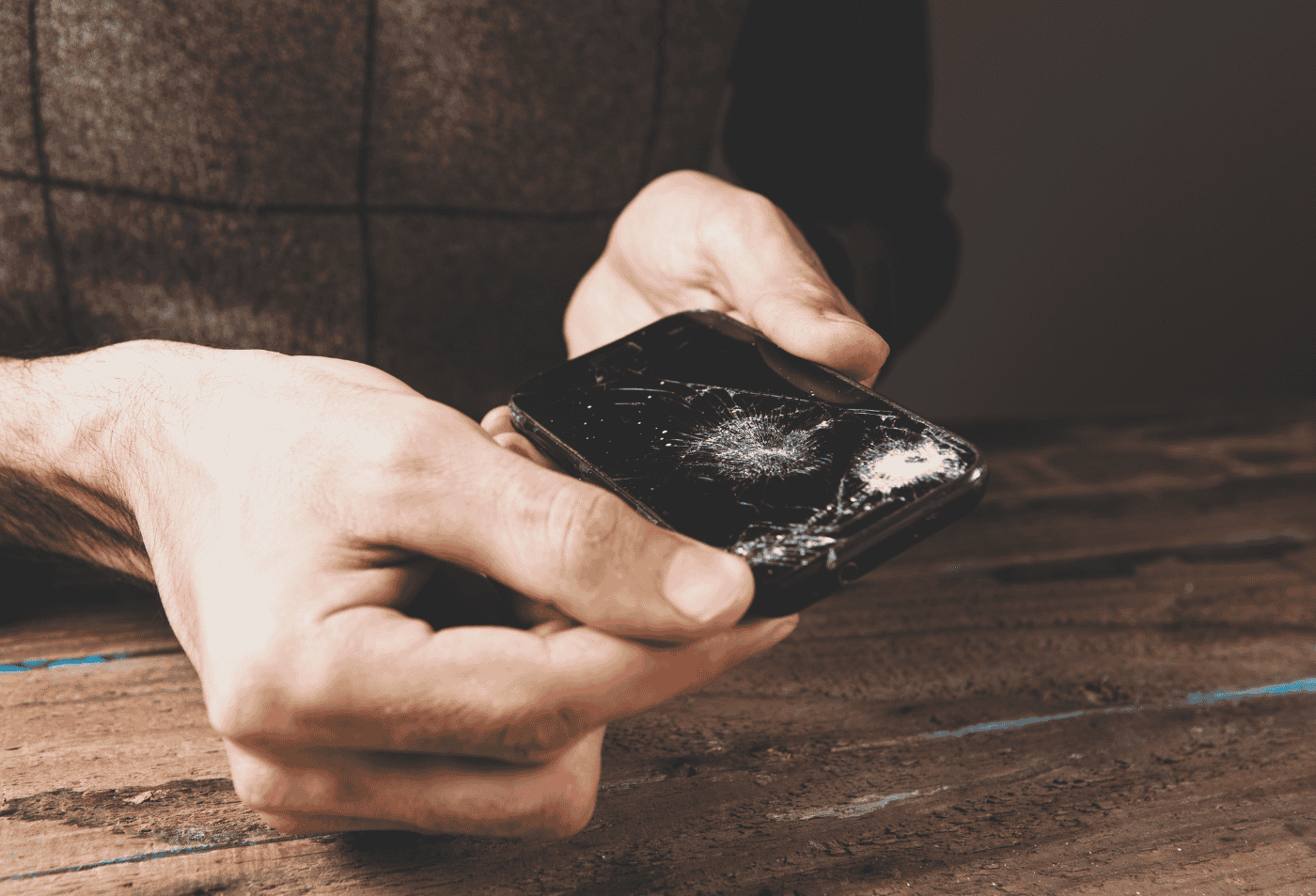
Legal Overview of Destroying or Damaging Property Offences
In New South Wales, intentionally or recklessly destroying or damaging property is a criminal offence under section 195 of the Crimes Act 1900 (NSW). When the act occurs in the context of a domestic relationship, it is treated as domestic violence and attracts additional scrutiny and consequences.
Detailed Description
- This charge covers intentional or reckless damage to property in a domestic context, often used to control, intimidate, or emotionally harm another person.
- Courts treat this as a serious offence, and convictions can lead to criminal records, legal orders, and other penalties.
Our team has extensive experience handling domestic violence property damage cases, offering practical advice, building strong defence strategies, and protecting our clients’ rights throughout the legal process.
A person commits this offence if they intentionally or recklessly destroy or damage property belonging to another person, or property shared between them.
Property damage in the context of domestic violence involves intentional destruction or damage to property. Wilfully damaging property such as breaking windows, slashing tyres, or damaging an individual’s personal belongings carries a maximum penalty of 5 years imprisonment.
In more severe cases of domestic violence, damage to property includes arson, such as setting fire to a person’s property, which carries a maximum penalty of life imprisonment.
Destroying or damaging property is an offence under section 195(1) of the Crimes Act 1900 (NSW). The prosecution must prove that the person:
- Intentionally and recklessly damaged or destroyed property
- That the property was damaged or destroyed
- The property belonged to another person
It is important to note that individuals in a domestic relationship may have joint or shared ownership of property. Unless in special circumstances such as things that are specifically one person’s, for example a woman’s personal sanitary items.
Examples in a domestic violence context
- Breaking a partner’s phone or laptop
- Punching holes in walls or smashing furniture
- Damaging a car, clothing, or personal items
- Throwing objects to frighten or intimidate
- Burning or vandalising shared property
Even if the accused owns the property (for example a jointly owned car), damaging it during an argument or in a threatening context may still amount to an offence.
When Is It Domestic Violence Related?
A property damage offence becomes domestic violence related when the accused and the victim are in a domestic relationship, including:
- Spouses and de facto partners (current or former)
- Family members
- Intimate partners
- People who live together or share care responsibilities
When such an offence is reported, police will usually apply for a provisional Apprehended Domestic Violence Order (ADVO) to protect the victim and prevent further contact or property interference.
检方必须证明的要素
To convict someone of this offence, the prosecution must prove beyond reasonable doubt that:
- The accused destroyed or damaged property
- The damage was done intentionally or recklessly
- The property belonged to another person (or was co-owned)
- The incident occurred within a domestic relationship
- The accused had no lawful excuse or justification
可能的防御
Common defences include:
- Accident – the damage was unintentional and occurred without recklessness
- Ownership – where the accused is the sole legal owner of the property and there is no co-ownership
- Duress – the accused was forced or threatened into committing the act
- Mental illness – where the accused lacked mental capacity at the time of the offence
- Lack of evidence – the prosecution cannot prove each element beyond reasonable doubt
Each case will depend heavily on the evidence, such as witness statements, photographs, police bodycam footage, and the history of the relationship.
潜在的处罚
The offence is considered serious and may be dealt with in either the Local Court or the District Court, depending on the circumstances and severity.
Penalties may include:
- Up to 5 years imprisonment if the damage was intentional
- Up to 10 years imprisonment if done during a public disorder
- Fines, community-based orders, or supervision
- ADVOs with conditions restricting contact, proximity, or communication
The presence of domestic violence as an aggravating factor can lead to harsher sentencing outcomes and an automatic recording of the offence as a domestic violence offence on the person’s criminal record.
Possible sentencing outcomes include:
- Dismissal of charges and conditional discharge (SECT 10)
- Conditional release orders (SECT 9)
- Community correction orders (SECT 8)
- Intensive correction orders (SECT 7)
- Custody (imprisonment)
- Fines and penalties

法律程序
& 选项
Destroying or damaging property in a domestic setting is not a minor offence. It is often a warning sign of escalating violence and is taken seriously by police and the courts. A conviction can impact employment, parenting arrangements, housing, and immigration status, especially when tied to an ADVO or a domestic violence finding.
恳求
无罪
If you are facing criminal charges, you should consult our team at Brightstone Defence immediately to discuss whether to plead guilty or not guilty. Once we review the evidence provided by the police, we can assess the case and build a strong defence strategy.
恳求
有罪
If the evidence against you is strong and a conviction is likely, pleading guilty early may be beneficial. However, it is crucial to fully understand the consequences before making this decision.
这是一项刑事罪行,故意或鲁莽地摧毁或损坏他人的财产而没有合法理由。这可以包括:
- 打碎家具、窗户或电子产品
- 损坏电话以防止呼叫求助
- 在争吵期间划伤汽车或打碎物品
如果被告和受害者处于家庭关系,如:
- 现任或前任伴侣
- 家庭成员
- 室友
- 共同父母
即使财产是共同拥有的或属于违法者,如果它是控制、恐惧或虐待行为的一部分,该罪行仍然可以与家暴相关。
如果财产是共享、共同拥有或为他人使用,可能构成犯罪。例如:
- 损坏共享的手机或电视
- 分手时燃烧财物
- 损坏财产以恐吓或惩罚伴侣
- 损坏伴侣的手机以阻止他们呼救
- 在争论期间在墙上凿洞
- 破坏或投掀家庭用品
- 损坏车辆或宠物的财物以制造恐惧或报复
- 不。即使是临时性或轻微损坏也足够,例如:
- 在某人的衣服上洒油漆
- 划伤表面
- 剪碎衣服或照片
关键是造成了某些损坏,而且不是意外。
- 是的。在家庭暴力事件中,即使受害人不希望,警察也必须在认为发生犯罪后提起指控。
不。它可以包括:
- 威胁性手势
- 举起拳头
- 口头威胁造成对即刻暴力的真实恐惧
身体接触(如打耳光或抓住)如果没有导致严重身体伤害,也可以算作普通攻击。
是的。单一行为:
- 打
- 推
- 威胁伤害
…可以被指控为普通攻击,特别是在家庭暴力背景下。
是的。在家庭暴力案件中,即使受害人:
- 不想继续
- 改变陈述
- 未能出席法庭
警察也可以且通常必须提起指控。这确保保护受害人免受压力、恐惧或胁迫。
是的。如果被定罪,一个人可能会收到:
- 刑事定罪
- 罚款、社区矫正令或监禁(在严重情况下)
定罪可能影响就业、旅行和未来的法律事务。
家庭暴力的受害人可以获得:
- 1800 RESPECT(全天候全国热线)
- 新南威尔士州受害人服务
- 法律援助、家庭暴力联络官和法庭支持服务
- 安全住房、咨询、财务援助
轻率意味着犯罪者:
- 知道或应该知道他们的行为可能造成严重伤害,但
- 还是继续前进,不顾后果。
- 故意GBH:犯罪者意图造成严重伤害。
- 轻率GBH:犯罪者没有意图造成伤害,但知道可能发生并承担风险。
故意犯罪通常会带来更严重的处罚。
- 是的。如果他们行事轻率(例如,用武器打人或在暴力爆发期间)并发生了严重伤害,即使他们没有意图造成这种程度的伤害,也可以被指控。
- 不。一旦警察提起指控,只有警察或检察官才能撤销。可以考虑受害人的意见,但他们不能单方面撤销指控。
家庭暴力的历史可以:
- 使保释更难获得
- 导致更严厉的判决
- 证明长期ADVO是合理的
- 根据判决法律被视为加重因素
- 是的。警察可以代表受害人申请家庭暴力抑制令(ADVO),有时甚至不需要他们的请求。它可以:
- 禁止犯罪者联系或接近受害人
- 对行为实施严格条件
- 根据情况制定临时(暂时)或最终命令
示例包括:
- 暴力威胁
- 通过社交媒体或消息骚扰
- 财产损坏
- 监视或重复的不受欢迎的存在
- 是的。法律涵盖当前和前任伴侣、家庭成员或与受害人在家庭关系中的任何人。
- 是的。警察通常会申请临时AVO以立即保护受害人。如果事情上法庭,AVO可以被最终化。
- 如果处于立即危险,请拨打000。
- 向当地警察报告。
- 保存事件记录(消息、照片、笔记)。
- 寻求家庭暴力服务的支持,例如1800RESPECT、White Ribbon Australia或Mission Australia。
“家庭关系”包括:
- 配偶或事实伴侣(当前或前任)
- 住在一起的人
- 亲属(包括通过婚姻)
- 处于护理关系中的人
- 有共同养育关系的个人(即使不再在一起)
- 跟踪:涉及跟踪、监视或重复联系某人,以造成恐惧的方式。
- 恐吓:更广泛——包括威胁、骚扰或任何使人害怕安全或福祉的行为。
两者都是刑事罪行,根据同一条款,当以意图制造恐惧的方式完成时。
- 我们经验丰富的家庭暴力刑事辩护律师可以提供立即建议、评估您的案件,并指导您使用最佳法律策略来保护您的权利并实现最佳结果。
- A Criminal lawyer can help you by:
- 解释您的权利和法律程序。
- 评估您是否有有效的辩护。
- 与检察官谈判以减少指控或处罚。
- 为您的案件准备并代表您进行辩护。
- 帮助减少对您未来的影响,例如避免犯罪记录。
- 早期法律建议可以显著提高您获得有利结果的机会。
这是一项刑事罪行,故意或鲁莽地摧毁或损坏他人的财产而没有合法理由。这可以包括:
- 打碎家具、窗户或电子产品
- 损坏电话以防止呼叫求助
- 在争吵期间划伤汽车或打碎物品
如果被告和受害者处于家庭关系,如:
- 现任或前任伴侣
- 家庭成员
- 室友
- 共同父母
即使财产是共同拥有的或属于违法者,如果它是控制、恐惧或虐待行为的一部分,该罪行仍然可以与家暴相关。
如果财产是共享、共同拥有或为他人使用,可能构成犯罪。例如:
- 损坏共享的手机或电视
- 分手时燃烧财物
- 损坏财产以恐吓或惩罚伴侣
- 损坏伴侣的手机以阻止他们呼救
- 在争论期间在墙上凿洞
- 破坏或投掀家庭用品
- 损坏车辆或宠物的财物以制造恐惧或报复
- 不。即使是临时性或轻微损坏也足够,例如:
- 在某人的衣服上洒油漆
- 划伤表面
- 剪碎衣服或照片
关键是造成了某些损坏,而且不是意外。
- 是的。在家庭暴力事件中,即使受害人不希望,警察也必须在认为发生犯罪后提起指控。
轻率意味着犯罪者:
- 知道或应该知道他们的行为可能造成严重伤害,但
- 还是继续前进,不顾后果。
- 是的。法律涵盖当前和前任伴侣、家庭成员或与受害人在家庭关系中的任何人。
- 是的。警察通常会申请临时AVO以立即保护受害人。如果事情上法庭,AVO可以被最终化。
“家庭关系”包括:
- 配偶或事实伴侣(当前或前任)
- 住在一起的人
- 亲属(包括通过婚姻)
- 处于护理关系中的人
- 有共同养育关系的个人(即使不再在一起)
- 我们经验丰富的家庭暴力刑事辩护律师可以提供立即建议、评估您的案件,并指导您使用最佳法律策略来保护您的权利并实现最佳结果。
- A Criminal lawyer can help you by:
- 解释您的权利和法律程序。
- 评估您是否有有效的辩护。
- 与检察官谈判以减少指控或处罚。
- 为您的案件准备并代表您进行辩护。
- 帮助减少对您未来的影响,例如避免犯罪记录。
- 早期法律建议可以显著提高您获得有利结果的机会。
成功案例和文章
Brightstone Defence全年提供有针对性的刑事辩护服务,并建立了良好的成功记录。
认识我们的律师
世界一流
代表
100 多条 5 星评价
为每个案例量身定制的个性化法律策略
刑事辩护法领域公认的领导者
免费初步咨询和案例评估
在高风险和复杂的案件中证明是成功的
即时获取预估报价
和免费咨询会议
面临刑事指控?我们经验丰富的辩护律师随时为您提供帮助。立即预订免费咨询,讨论您的案例并了解您的选择。









